Dear Students of the School of Thinking,
Thank you for time we’ve spent together. In addition to what my colleagues have shared earlier, I’ve found your group not only welcoming, interesting and diverse, but also mature and emotionally containing. This is a very hands-on example of a good environment for thinking together.
Co-thinking is a challenge in many respects — and the difficulty of defining what co-thinking is one of these challenges. Is it simply the act of sitting together and exchanging ideas? Does it encompass influencing someone else’s thinking process? Or maybe designing and influencing the whole environment in which thinking happens?
During our workshop we have explored a few entangled perspectives, bringing in your everyday experience, summarizing the mainstream social psychology research on group communication and effectiveness, exploring the unconscious dynamic of group’s emotional lives, and finally trying out a sample method for making group thinking more effective. In all these experiences I had three main goals:
- Review crucial phenomena of group dynamic that may influence the process of thinking together;
- Experience thinking together (in here and now) to build awareness of a process and enhance flexibility;
- Co-design ways and tools for co-thinking to address challenges and make optimal use of group potential.
As you may remember, I have encouraged you to observe and share descriptions of group dynamics at work. When sharing those experiences, your comments revolved around the following themes:
- exercise and impact of authority, including presence of experts in the room;
- quality of leadership and its function for group effectiveness;
- the interplay between individual and group / team objectives;
- the challenge of finding socially acceptable responses and ways of expressing oneself;
- the influence of majority on minority groups; defining and expressing one’s identity in ways that make him/her a member of a minority;
- competition/division between individuals and subgroups.
The “naïve” or “common sense” understanding of group dynamics treats it as a simple sum of individual actions. This is true to an extent – there is no physical substrate of a group that would be something more than a certain number of people that it consists of. Yet, people often behave as if a group mind of sorts existed and had different intentions than any particular individual. As you have noticed during the “magic stick” exercise, the output of individual intentions and actions might be something surprisingly different from what each member of the group had in mind.
How do we make sense of this? One way that we have explored is the perspective of group as a whole – an entity that exists only in the mind of its members, but through this virtual presence exerts a very real influence on them. As you now know, actions of group members may be seen and interpreted as an expression of their own decisions, needs and goals, but also as being driven by the group as a whole to satisfy its emotional needs. This bit of insight is crucial to understanding why groups of competent and well-intended people sometimes become hugely ineffective.
Looking at the groups you belong to through that lens may be very revealing. If you choose to make it your habit, you might develop a new capability – a “third eye” that could allow you to look, listen, feel and think about the unconscious dynamic of various groups you belong to. The first benefit you can reap from that is that from time to time you will be more free to choose your own reaction, rather than become a puppet of the group needs. Finding a way of shaping those processes in a way that fosters effective communication and cooperation is the next step after that. As we discussed, this is a crucial part of developing an effective leadership function that can be supported and maintained in the long run.
Even more ambitiously, we could not only hope for enlightened leaders, but also for self-aware groups of people who know how to reflect upon and deal with challenges related to group dynamics. In Trilogy Event you could observe that it is not an easy thing, that it requires genuine effort of the whole group, and constant focus on the task. Interestingly, we have noticed that smart followership is just as important as leadership.
In the assignments and the experiential parts of the workshop, we have also observed that our internal emotional experience shapes your capacity to join others in thinking and contributing to common goal. I hope I was able to convince you that these internal signals aren’t just an indication of how well you manage your own emotional life but can also serve as data about the emotional state of the group as a whole. When you act as part of a system, you may sometimes recognize that some of your emotional experience ‘does not belong to you’ but is a residue of the unconscious group processes. Of course, knowing what’s yours and not yours requires significant self-awareness. In this context we have referred to two important concepts: containing and negative capability. Containing is all about creating space for thoughts and feelings received from another person or group, hold them, digest, and transform into own thoughts that may be communicated or not. To make it possible, one needs to create an “empty space” inside – negative capability – to act in the situation “without memory and desire”. I wish we could spend more time on this, but no amount of discussion is going to be helpful here – not unless one make a habit of observing emotions before habitually reasoning about them.
I was also impressed by your struggles and successes in thinking together using the logovisual thinking method and I hope you will develop even better tools to shape these processes. All in all, I hope that this workshop may have been an impulse to start looking at groups that you think with more reflectively. One downside is that when you do this, you notice things that cannot be unseen. Remember you’ve been warned.
It was pleasure to work with you, and I’m looking forward to meeting you again. I hope we’ll have more chances to think together.
I wish you all good time during Christmas and a happy New Year.
Iwona Sołtysińska


